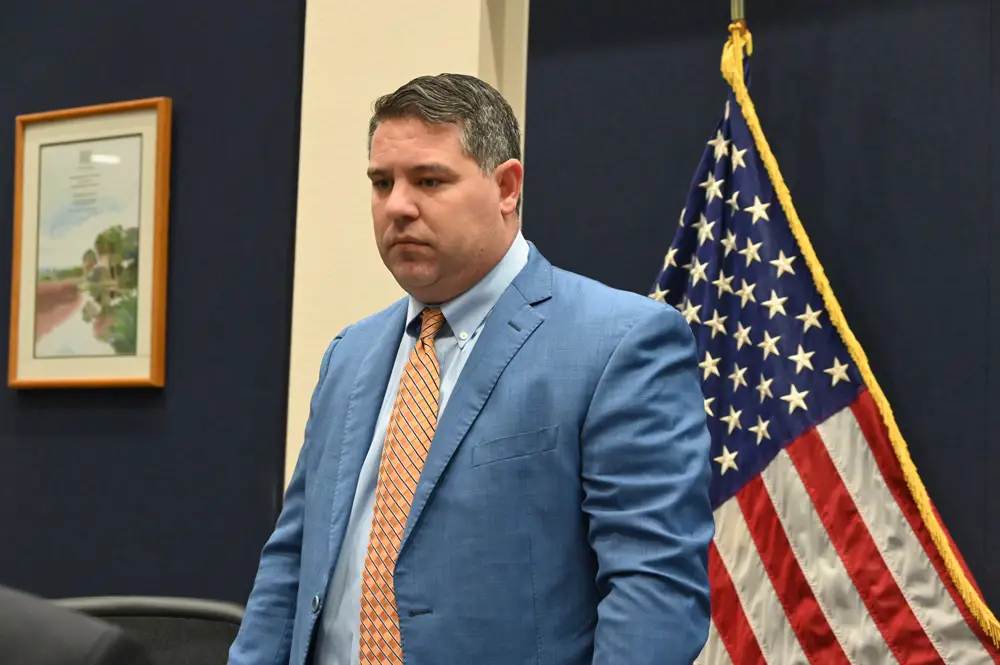
Almost every year since 2014, Florida lawmakers have been trying to reduce local regulatory control on the booming vacation-rental industry or shift it to the state–what’s called “pre-emption.” The state would then bar local governments from enacting many of their own regulations.
Pre-emption bills have been introduced and cleared almost every committee where they’ve been heard. They have failed at the last step, either by not getting one final committee hearing or by not getting a vote of either legislative chamber.
The latest pre-emption attempt is Senate Bill 280, sponsored by Nick DiSeglie, the St. Petersburg Republican in a repeat effort from last year. The bill cleared the Fiscal Policy Committee today, 12-5, with Palm Coast’s Travis Hutson, who chairs the committee, in the majority.
Neither the vote nor Hutson’s vote against the will of the local County Commission and Flagler Beach was a surprise. The surprise was how quickly this bill is moving and how quickly it cleared all two of its committee assignments as it now heads to the Senate floor for a vote, well before the kind of jam at the end of the session that proved fatal in the past. That means the bill’s chances of passing, especially if its companion in the House moves as speedily, is very high. So far, however, the House bill has not been heard in any of its three committees.
DiCeglie today strained to describe the bill as striking the right balance between regulation and property rights. The bill does give local governments slightly more room to fine vacation-rental violators and provides for some additional transparency, though not nearly as much as what hotels and motels are required to provide.
There are at least 45,000 vacation rentals in the state, at least officially. The true figure is likely much higher: one lobbyist who addressed the committee today said Vrbo, one of the largest companies operating rentals in the state, had briefly claimed on its website it had 192,000 rentals in Florida.
At the heart of the issue is how many people vacation rentals may house at any one time, and how much direct authority local governments have to regulate that, plus the noise, trash and parking issues they generate.
That’s what Flagler County has been attempting to protect since 2014, when it successfully got Hutson, then a House member, and then-Sen. John Thrasher, to push the local-regulation bill that became law. Hammock residents especially had been complaining to local officials and legislators that vacation rentals were becoming mini-hotels in residential zones–unruly, noisy, trashy. The new law gave counties and cities the authority to control that. Right now, the rule in Flagler is no more than 10 people at a time (with some grandfathered properties that may exceed that). And local code enforcement may directly regulate vacation rentals.
Al Hadeed, Flagler County’s attorney then and now, drafted the local ordinance that became a template for other governments across the state. The county has been protecting it since.
SB280 would render that local-control provision almost void. DiCeglie went out of his way to say that that wouldn’t be the case. But while local governments could still regulate vacation rentals as they do now, “280 will remove the ability for local communities to distinguish short term rentals from residential homes. That was a huge issue In 2014,” David Welch, the mayor of Redington Beach, told the committee,
In other words, local governments may regulate all the want–but not if they don’t impose the very same regulations on regular residential homes. That, of course, is impossible: no local government has those kind of resources, nor would existing residents stand for that kind of imposition in their own homes, where the number of guests may at times exceed 10, but not as a business, not as a routine.
Welch’s most powerful statement came early on: “I would like to thank the author and sponsor of that 2014 legislation. Senator Hutson, Senator Mayfield,” Welch said wryly. “Unfortunately, SB280 will undo all of the good work done by these two senators, and will bring us back to the 2011 preemption which caused quite the controversy among residential communities throughout our state.”
To DiCeglie, “there’s been somewhat of, I would say, a weaponization of government to prevent these properties from operating as vacation rentals. And I think that this bill is going to address those concerns.” The goal, he said, is to eliminate a mosaic of local regulations and create “a uniform set of standards of regulations” that would “create predictability at the local level for local governments, for the residents who live in the community, for property owners who want to exercise their property rights for the platforms.”
But some senators–Democrats, anyway: the bill passed on a party-line vote–and several lobbyists who addressed the committee, disputed the validity of a one-size-fits all approach. Jack Cory, a lobbyist for Jacksonville, said the city he represents “is very different from St. Augustine, Orlando, Wachula, and the other 17 communities that are represented on this committee.”
Cory said the bill’s registration system will micromanage 478 local governments. “The passage of this bill as amended, would erode the prosperity of over 5 million Florida residents who bought their homes to live in a residential neighborhood with homestead exemption,” he said. “They did not want to live in a commercial zone next to mini hotels.”
Other than the senators, only one person who addressed them was almost entirely behind the bill–Tiffany Edwards of the Florida Professional Vacation Rental Coalition–though she had concerns, too: she sees the bill as enabling a double layer of regulation, one at the state, one locally. She was concerned about the surviving mechanism for code violations, and about the bill’s lack of protection for consumers.
But the hearing reflected the familiar dynamic of former such hearings over the years: local governments or state associations like the Florida League of Cities and Association of Counties lining up against the proposal, and a limited group of vacation rental industry representatives lining up for it, chief among them the senators pushing the bill.
![]()








